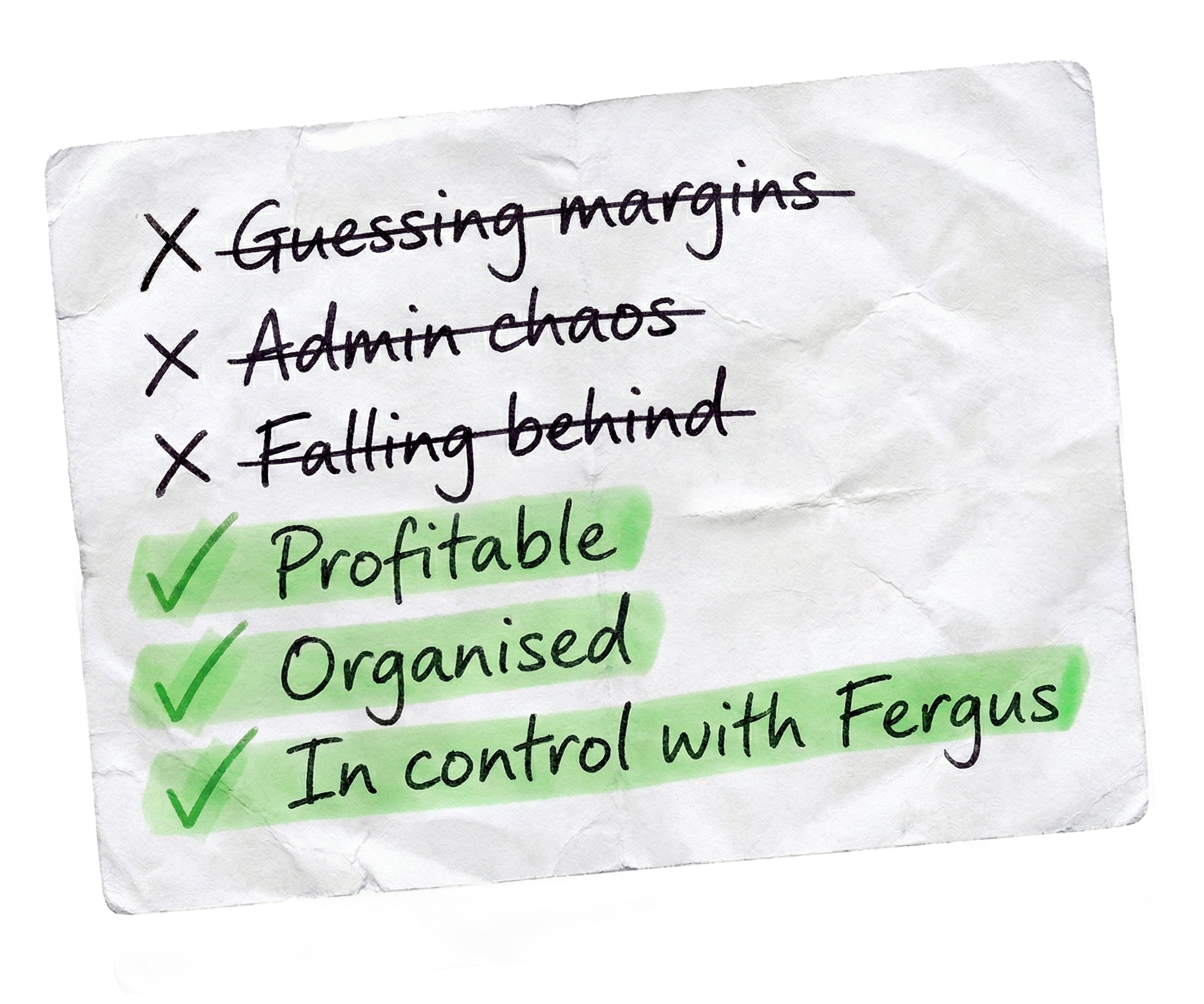
Running a business as a tradesperson, whether you’re an electrician, plumber, or any other skilled professional, can be challenging.
Between managing clients, scheduling jobs, and keeping track of finances, it’s easy to feel overwhelmed.
However, by putting a proper strategy in place, you can streamline your operations and make your business run more smoothly.
Here are five ways tradespeople can organise their business effectively.
One of the most critical aspects of running a trades business is managing your time efficiently.
Implementing a scheduling system can help you keep track of appointments, deadlines, and job details.
There are various tools available, from simple calendar apps to more sophisticated scheduling software designed specifically for tradespeople (hello there!).
These tools can help you avoid double bookings, ensure you arrive on time, and keep your clients happy.
Additionally, many scheduling systems offer features like reminders and notifications, which can help you stay on top of your commitments.
Keeping track of your finances is crucial for any business.
Using accounting software can simplify this process by helping you manage invoices, track expenses, and monitor cash flow.
Many accounting tools are designed with small businesses in mind and offer features like automated invoicing, expense tracking, and financial reporting.
By using accounting software, you can save time on administrative tasks and ensure your financial records are accurate and up-to-date.
This can also make tax time less stressful, as you’ll have all your financial information in one place.
For tradespeople, having the right tools and materials on hand is essential.
Organising your inventory can help you keep track of what you have, what you need to order, and where everything is located.
Start by creating an inventory list that includes all your tools, equipment, and materials.
Regularly update this list to reflect any new purchases or items that are used up.
Consider using inventory management software to streamline this process.
By keeping your inventory organised, you can avoid last-minute trips to the supply store and ensure you have everything you need to complete your jobs efficiently.
Building strong relationships with your clients is key to growing your business.
A Customer Relationship Management (CRM) system can help you manage your interactions with current and potential clients.
CRM software allows you to store client information, track communications, and manage follow-ups.
This can help you provide better customer service, as you’ll have all the information you need at your fingertips.
Additionally, a CRM system can help you identify opportunities for repeat business and referrals, which can be a valuable source of growth for your business.
Standard Operating Procedures (SOPs) are detailed, written instructions on how to perform specific tasks.
Creating SOPs for your business can help ensure consistency and efficiency in your operations.
Start by identifying the key processes in your business, such as quoting jobs, completing work, and invoicing clients.
Then, document each step of these processes in detail.
Having SOPs in place can help you train new employees, maintain high standards of work, and reduce the likelihood of errors.
Additionally, SOPs can save you time by providing a clear reference for how tasks should be completed.
The five methods we have mentioned may seem a bit like hard work, but organising your business as a tradesperson doesn’t have to be complicated.
It requires putting processes in place to keep your trades business successful.
By bossing your scheduling, getting on top of your finances, and organising your day-to-day, you will see the fruits of your labour.
These strategies can help you save time, reduce stress, and provide better service to your clients.
Remember, a well-organised business is a successful business.
Stop drowning in admin & paperwork. Start focusing on the jobs that make you money.



Our 20,000+ trades businesses have slashed their admin, are getting paid faster, and are finally enjoying their weekends again.







